New Scientist

Brief oasis of oxygen could have supported complex life 2.3 billion years ago
Earth is thought to have begun to develop its modern, oxygen-rich atmosphere as recently as 800 million years ago. This ...
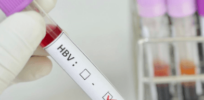
Healthy aging promoted by tweaking ‘old blood’
The effects of blood on aging were first discovered in experiments that stitched young and old mice together so that ...
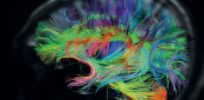
Mini brains grown from teeth stem cells reveal secrets of sociability
Can tiny brains grown in a dish reveal the secrets of sociability? Balls of brain tissue generated from stem cells ...
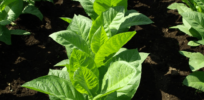
New RNAi spray formulation protects plants from viral infection for 20 days
...[A] team at the University of Queensland in Australia has managed to achieve long-lasting gene silencing inside plant cells. They ...

Viruses have evolved so that men suffer worse symptoms than women
Some viruses might cause weaker symptoms in women than in men because it makes them more likely to spread. Many ...
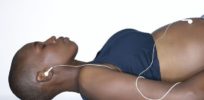
Motherhood changes your brain to connect better with newborn
Elseline Hoekzema at Leiden University in the Netherlands and her team compared brain scans of 25 first-time mothers with those ...
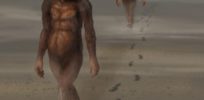
Discovered ancient footprints hint males had multiple “wives”
Laetoli in northern Tanzania is the site of iconic ancient footprints, capturing the moment – 3.66 million years ago – ...
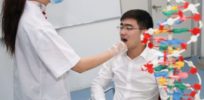
CRISPR gene editing human trials in China and US offer hope for countless lives
In 2015, a little girl called Layla was treated with gene-edited immune cells that eliminated all signs of the leukemia ...

Want to save the planet from environmental disaster? Stop buying organic food.
[F]arming is the second largest source of greenhouse gas emissions worldwide, only slightly behind heating and electricity. ... The one ...
How gene therapy might treat diseases once thought untreatable
What is gene therapy? [Gene therapy] is a way to fix a gene defect in a person’s cells. One way ...

WHO announces that Zika is no longer a public health emergency – it’s worse
Zika virus no longer represents a public health emergency, the World Health Organisation announced on [Nov. 18]. On the face ...
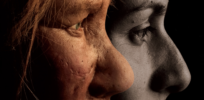
Why Neanderthals did not survive side-by-side with humans
The Neanderthals, who once colonized Europe and Asia, became extinct about 30,000 years ago – but not before interbreeding with ...
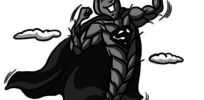
Do GMOs boost yields? ‘Superwheat’ set for field trials boosts harvests by 20%
Genetically modified crops could help us grow more food on less land in a world struggling to cope with climate ...
Brain implants could enhance memory and intelligence
If you could implant a device in your brain to enhance your intelligence, would you do it? [Bryan Johnson, the ...
Obese women give birth to ‘biologically older’ babies
Women who are overweight while pregnant are more likely to have babies who are biologically older than those born to ...
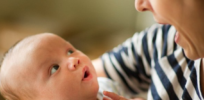
Older women who underwent IVF have fewer babies with abnormalities
Higher maternal age and assisted reproduction are both linked to congenital anomalies, including Down’s syndrome, heart defects and cleft palates, ...
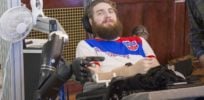
Brain implant allows quadriplegic man to feel touch on robotic hand
For the first time, brain stimulation has made it possible for a paralyzed person to experience the sensation of touch ...
Genetic mutations can accumulate over time contributing to cancer risk
How young will you be when you get cancer? The number of mutations you have in different genes can bring ...
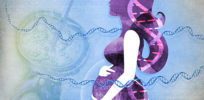
First infertile women who used ‘three-parent’ method to give birth in early 2017
The first babies to be created using a “three-parent” method to overcome their parents’ infertility are due to be born ...
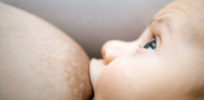
End of breastfeeding period triggers breasts to ‘eat themselves’
When a woman stops breastfeeding, her breasts go from being full-time, milk-producing factories to regular appendages...Now a molecular switch has ...
Nerve cells travel around inside baby’s brain for months after birth
Continuing for months after birth, armies of neurons migrate through a baby’s brain, until they reach their destination. Now researchers ...
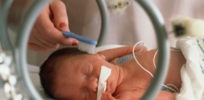
Everything you need to know about three-parent babies
A baby boy has been born using DNA from three people – the first ever birth resulting from a new ...
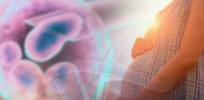
World’s first baby born from new, controversial three parent embryo technique
A five-month-old boy is the first baby to be born using a new technique that incorporates DNA from three people... The ...
Kuwait’s blanket genetic sampling efforts may harm its economy and science
Compulsory DNA testing of all citizens and visitors sounds like an Orwellian nightmare, but this is the new reality [for ...
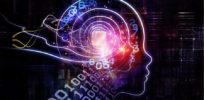
Blind use visual cortex region of brain to solve math problems
While a leading theory suggests our visual experiences are linked to our understanding of numbers, a study of people who ...
Despite successful experiment, two-father babies still may not happen
Healthy mice have been created using sperm and cells that aren’t quite eggs for the first time. New Scientist questions ...
Scientists uncover our tongue’s sixth taste and why we love carbs
[C]arb cravings can be hard to resist[, but n]ow there’s evidence that carbohydrate-rich foods may elicit a unique taste too, ...
Lab’s choice of nutrients may determine sucess of IVF, babies’ health throughout their life
Here’s another layer of confusion to add to the uncertainty of going through IVF. The type of liquid a lab ...

